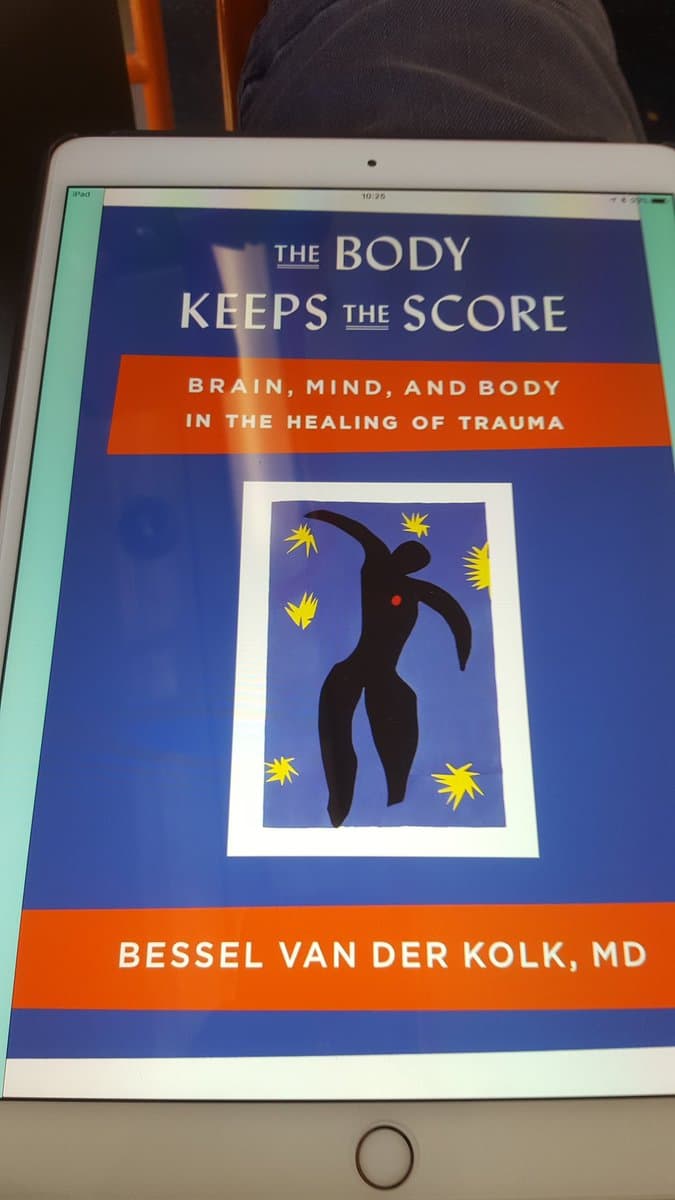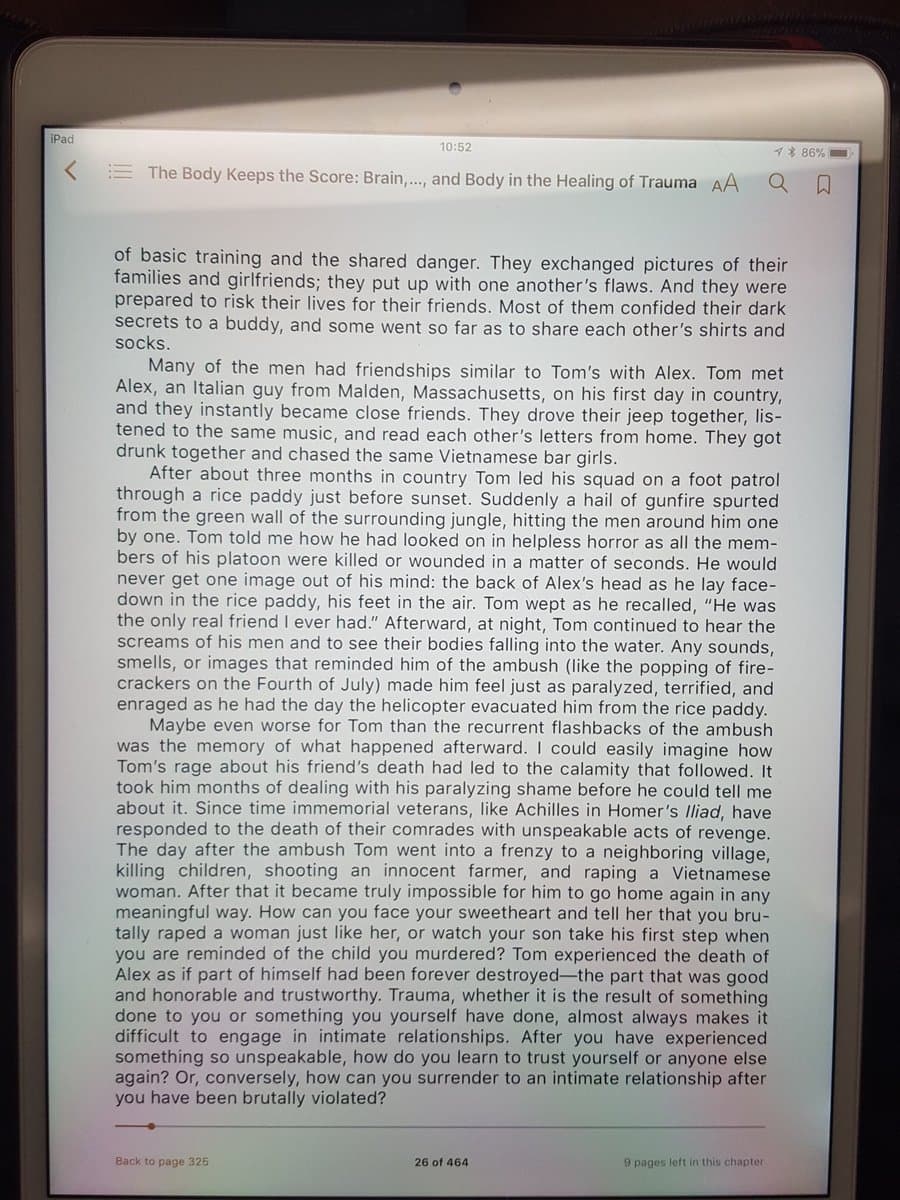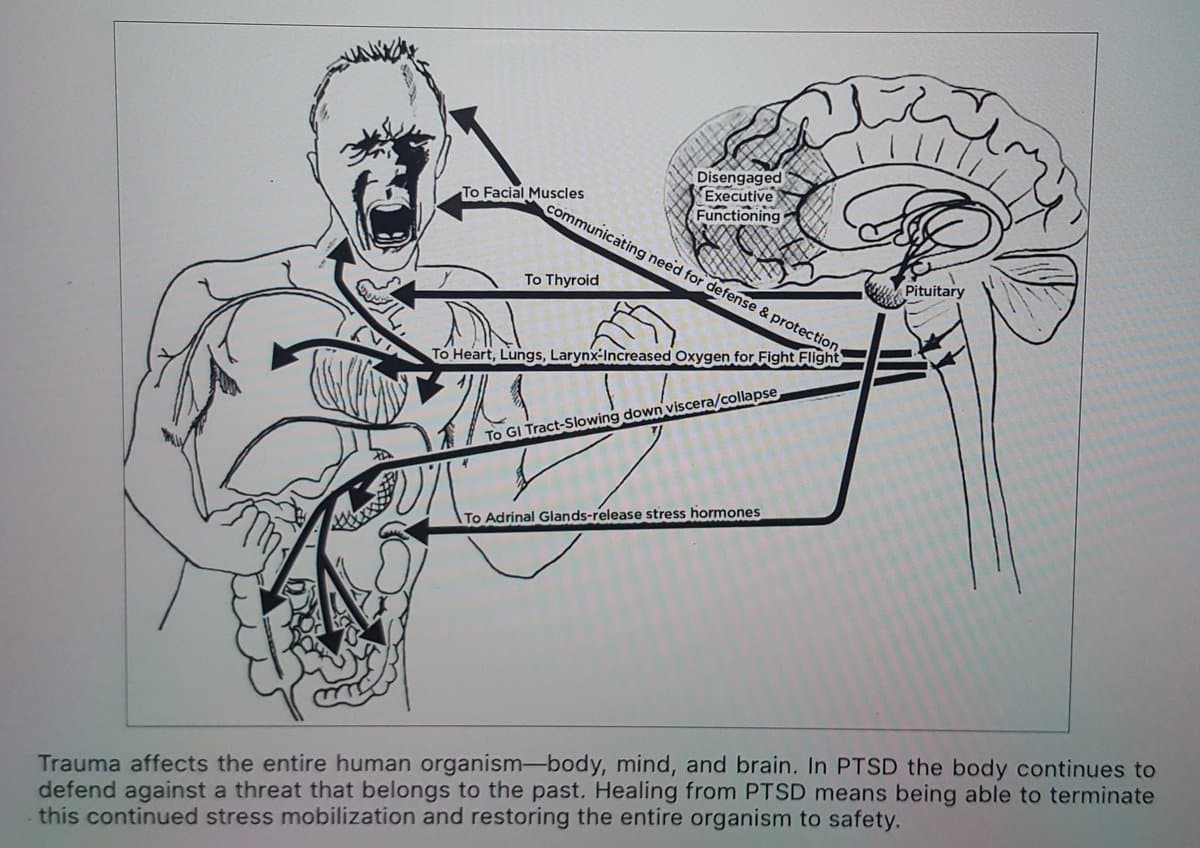🧵 View Thread
🧵 Thread (22 tweets)

#nowreading The Body Keeps The Score, Bessel van der Kolk https://t.co/3cptqUrGaL


Traumatic experiences leave traces, small and large Most victims are so upset when thinking about what happened that they push it out of mind Takes a lot of energy The lizard brain is bad at denial/forgetting- react to hints of danger with massive secretions of stress hormones

Trauma produces physiological changes, recalibrating the brain's alarm system It also compromises the physical, embodied experience of being alive This is related to why traumatized people often repeat the same problems and have trouble learning from experience

The veteran was prescribed pills that reduced the incidence and severity of his nightmares- but he didn't take them, because he felt that evicting the nightmares would mean abandoning his dead friends. (Senselessly trivial comparison: I think I feel similarly about cigarettes)

Author makes a poetic point about how psychiatrists, being human, are prone to self-delusion when treating patients. "Working at the VA I soon discovered how excruciating it can be to face reality. This was true both for my patients and for myself."

War is worse than hell https://t.co/O9er5bkIHi


"It takes enormous trust and courage to allow yourself to remember" Traumatized people struggle to confront their shame about their behavior during traumatic episodes (whether warranted or not). They despise themselves for how terrified, dependent, excited or enraged they felt

When 21 veterans were given Rorschach tests, 16 reacted as if they were experiencing wartime trauma, and 5 were blank and numb ("just a bunch of ink"). Trauma assaults the imagination - you either imagine terrible things, or nothing at all. Both versions damage quality of life

After trauma the world becomes sharply divided between those who know and those who don't - people who have not shared the traumatic experience can't be trusted, because they can't understand it. Sadly this often includes spouses, children, colleagues, friends

In group therapy, once the veterans finally opened up, they shared a great bond with each other - but they struggled to talk about anything other than their traumatic experiences. They felt fully alive only when reliving their worst moments; it became their sole source of meaning

Elvin Semrad: the greatest sources of our suffering are the lies we tell ourselves. People can never get better without knowing what they know and feeling what they feel. Strive to be honest with yourself about every facet of your experience

Learned helplessness: the mere opportunity to escape does not necessarily make traumatized animals, or people, take the road to freedom. Many give up. Rather than risk experimenting with new options, they stay stuck in the fear they know.

1. mice raised in a warm nest with plenty of food scurried home immediately when subjected to loud, intrusive noises. 2. mice raised in noisy homes with little food similarly returned home EVEN WHEN BEING IN MORE PLEASANT ENVIRONMENTS. I guess home is home even if it's hell

There are countless examples of traumatized people who repeatedly seek out stressful and dangerous circumstances. It appears that endorphins & serotonin levels have something to do with this, but it's not clear. (Seems like being abused is "better" than the FEAR of being abused)

4 fundamental truths overlooked by the brain-disease model of mental health: 1: People can heal each other 2: Language can alter perspective (art!) 3. We can physically influence the regulation our own physiology 4. Environments can be modified to be nurturing and healthy

When traumatized patients are in an fMRI and listening to a traumatic story: the amygdala lights up (cascade of stress hormones), as expected. The Broca's area (speech center) goes dark - usually observed when people have strokes. Trauma can cause people to freeze and go mute

Trauma is a full body experience https://t.co/9UQeE6nJ2u
